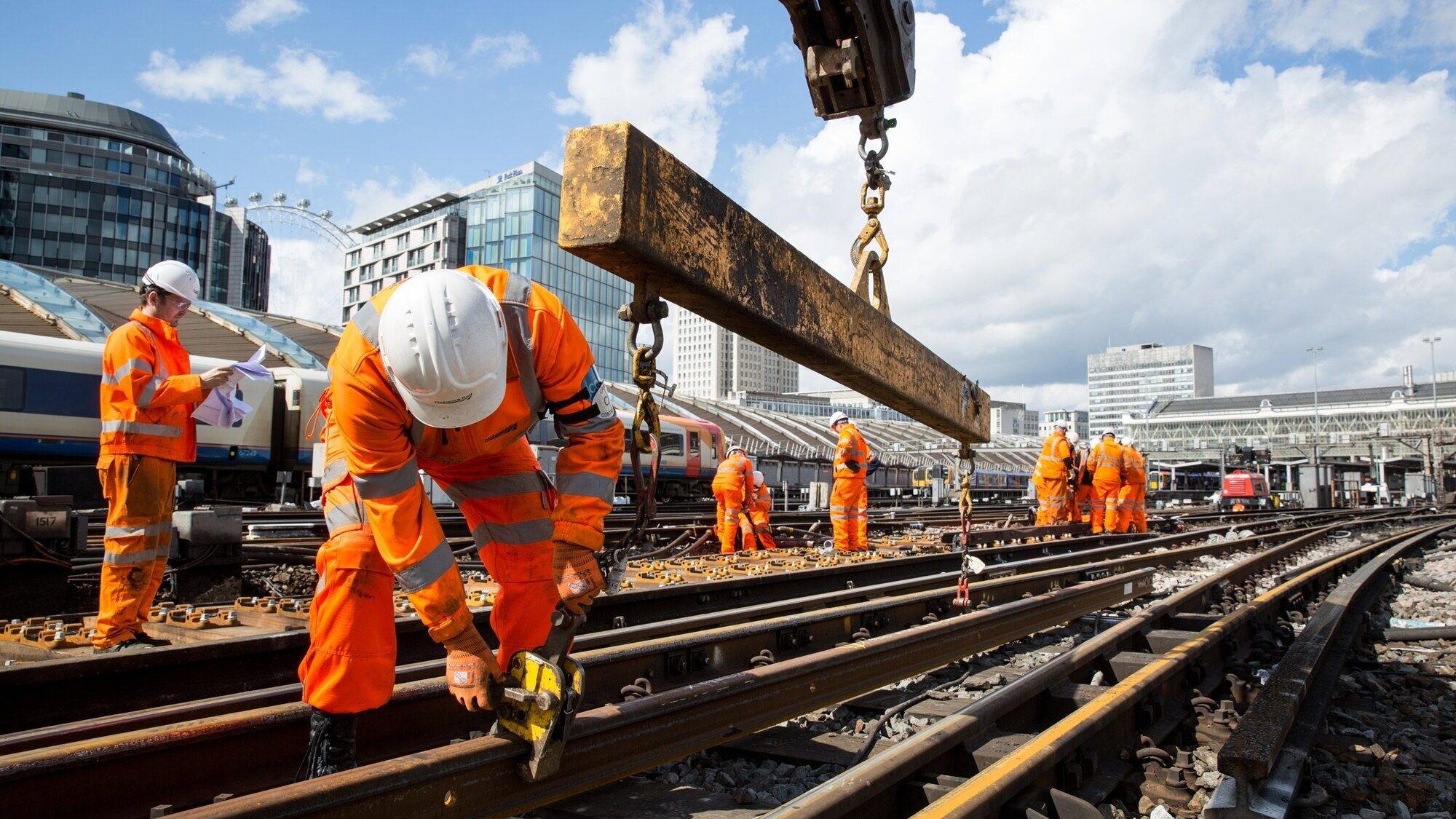
Network Rail health and wellbeing
Can attitudes and behaviours of a 36,000 strong workforce change and drive a lasting business benefit to be proud of?
Transporting awareness on time
As one of the largest public sector companies, Network Rail recognised that the health and wellbeing of its workforce were hugely important for the future.
A new approach was therefore needed to spearhead its health and wellbeing division, everyone fit for the future. Focusing upon the core themes of mental, physical and social health, the new brand sought to promote accessibility, approachability and inclusivity to a 36,000 strong workforce.
Providing clear lines of support and advice to its audience.
Understanding the customer problem
How do you engage a largely male-centric workforce and change behaviours and sceptical attitudes towards health and wellbeing?
As an idea of the problem, it’s best to look at the broader health and wellbeing picture in the UK first to understand the business impact of an unprepared workforce left to muddle through.
If ignored, the effects of health and wellbeing issues can be huge:
1 in 4 people
in the UK experience a mental health problem each year.
17.5 million
working days in the UK lost due to mental health issues.
£43 billion
cost to UK bosses due to poor mental health of employees.
Understanding the audience
To best understand the barriers of entry for each individual we conducted extensive user research to uncover opinion, ignorance, acceptance and more.
Drop-in health and wellbeing discussion groups
Depth interviews with staff and stakeholders
Anonymous employee surveys
Diary studies
Brand workshops and site visits
Competitor analysis and benchmarking
User research findings
Following a period of 12 weeks, the user research uncovered some telling stats that shed light on the challenge ahead for the new brand to overcome.
surveyed had suffered from anxiety, stress or depression at some stage in their lives.
of men said the biggest pressures in their lives were work, finance (31%) and health (23%).
of men said it would take thoughts of suicide to compel them to seek professional help.
said they would not feel comfortable speaking to a GP or any other health professional.
Unlocking positive attribution
In order to see where the truest brand connection could occur, a series of hands-on learning phases were undertaken.
On-site environment visits
Brand value and development workshops
Persona profiling
Experience mapping across similar brands
Assessment of existing mental modelling
Lo-fi prototyping to gauge cognitive load
Key brand learnings to leverage
The detail that informed the brand creation and forms of engagement.
Authenticity had to be high to gain trust.
Ensure learnings were actionable.
Individual relevance had to be immediate.
Allow engagement to be anonymous.
Demystify the subject matter where possible.
Have a gender neutral tone of voice.
Keep information short and bitesize.
Key values were trust and authenticity.
Introducing ‘everyone fit for the future’
Everyone fit for the future places a dedicated focus on the key aspects of mental, physical and social health of each individual in the Network Rail workforce, now and for the future.
The creation of a clean and recognisable identity helped embed these key aspects within its audience’s awareness and pave the way for open and honest conversations around sensitive topics.

Visual styling that resonated well with the audience

A range of initial identity concepts based on three naming concepts

Final identity utilising clean and recognisable interlocking shape to highlight health and wellbeing as a balance

Brand guidelines for internal and external teams

Large format version which acts as an aperture for imagery for greater depth

Internal promotion and awareness
Brand engagement
In order to connect with each individual and drive behaviour change, a digital strategy was created that included several touchpoints for all to use each day.
A collection of best practice advice, methods, guidance and tips delivered via a range of interactive tools and initiatives. Examples are shown below:
iBeacon iOS & Android notifications for timely reminders and advice
Online resources and tools
Online health and wellbeing awareness events calendar
Ask an Expert feature for real-time advice from professionals
The impact of the new brand
Pressure reduced by 19%
41.8% of employees dropping to 22.4% of employees who felt under excessive levels of pressure across 12 months.
Confidence rose to 39.7%
An increase from 29.7% employees who felt confident in spotting the signs and symptoms of mental health issues.
17% increase in openness
44.6% of employees felt comfortable and willing to discuss mental health with a manager or colleague at work.
Sentiment grew to 78.9%
Employees who agreed that Network Rail cared for their health and wellbeing increased from 56.5% to 78.9%.
Highly Commended Award
UK-wide Employee Benefits Award for the category of ‘Most Effective Stress Management and Mental Resilience Strategy’.



















